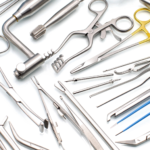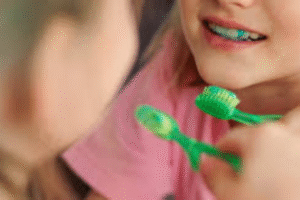Wearing braces is an exciting step toward achieving a straighter, healthier smile, but it also comes with new responsibilities for maintaining oral health. Braces create small spaces where food particles and bacteria can become trapped, increasing the risk of plaque buildup, cavities, and gum issues. Maintaining good oral hygiene throughout your treatment from a South San Jose orthodontist is crucial for protecting your teeth and gums while setting the stage for stunning final results.
Here are some essential tips to help you keep your mouth healthy while wearing braces.
1. Master Proper Brushing Techniques
Brushing your teeth becomes even more important when you’re wearing braces, and it requires more attention to detail. Start by choosing a soft-bristled toothbrush or an electric toothbrush with a small head. These tools can help you reach awkward angles around the brackets and wires.
You can use fluoride toothpaste and brush at least two to three times a day, especially after meals. Hold your toothbrush at a 45-degree angle, gently brushing along the gumline, each tooth surface, and around the braces. Spend extra time cleaning around the brackets to remove trapped food and plaque.
To ensure thorough cleaning, you can also consider adding an interdental toothbrush or proxy brush to your routine. These small brushes are designed to clean between the braces and wires where a regular toothbrush might not reach.
2. Don’t Skip Flossing
Flossing can be tricky with braces, but it’s a non-negotiable step in preventing gum disease and tooth decay. Traditional floss may be hard to maneuver, but orthodontic floss threaders or pre-threaded floss picks make it much easier. These tools allow you to slide the floss beneath the wire and between your teeth to remove debris and plaque.
For added convenience and effectiveness, you might want to try a water flosser. Water flossers use a pressurized stream of water to clean between the teeth and around the braces, making it an excellent option for reaching tough spots.
3. Rinse with a Fluoride Mouthwash
Adding a fluoride mouthwash to your oral care routine can provide extra protection against cavities. Swishing with a fluoride rinse helps strengthen your tooth enamel and flush debris away from hard-to-reach places. Use it once a day, preferably before bed, to give your teeth that extra layer of defense overnight.
4. Watch What You Eat
Your diet plays a significant role in keeping your braces and teeth safe from damage. Sticky, hard, and crunchy foods can be disastrous for braces, as they may loosen brackets or bend wires. Avoid foods like caramel, chewing gum, popcorn, nuts, and hard candies.
Instead, opt for softer options like yogurt, soups, steamed vegetables, and ripe fruits. Cut tougher foods, like apples or raw carrots, into smaller pieces before eating to minimize stress on your braces. In addition, reduce your intake of sugary and starchy snacks, as they can contribute to plaque buildup and cavities.
5. Stay Consistent with Dental Check-Ups
Regular check-ups with your dentist and orthodontist are essential throughout your braces treatment. While your orthodontist focuses on adjusting your braces and monitoring progress, your dentist ensures your teeth and gums remain healthy. Professional cleanings are especially important for removing plaque and tartar that can’t be reached through brushing and flossing alone.
During these visits, your dentist can also identify any early signs of cavities or gum issues and address them promptly, preventing further complications.
6. Manage Discomfort Responsibly
It’s normal to experience some discomfort after getting your braces tightened, but this shouldn’t deter you from maintaining your oral hygiene routine. If brushing feels uncomfortable, try using a toothbrush with softer bristles or rinsing your mouth with warm salt water to soothe sore areas.
For irritation caused by brackets or wires, orthodontic wax can serve as a protective layer between the braces and the inside of your cheek or lips.
Conclusion
Oral care becomes more intensive when you have braces, but a clean mouth is key to achieving optimal results from your orthodontic treatment. By adopting habits like proper brushing and flossing, eating a braces-friendly diet, and attending regular check-ups, you’ll protect your smile every step of the way. Remember, the effort you put in now will pay off with healthy, beautiful teeth for years to come.














